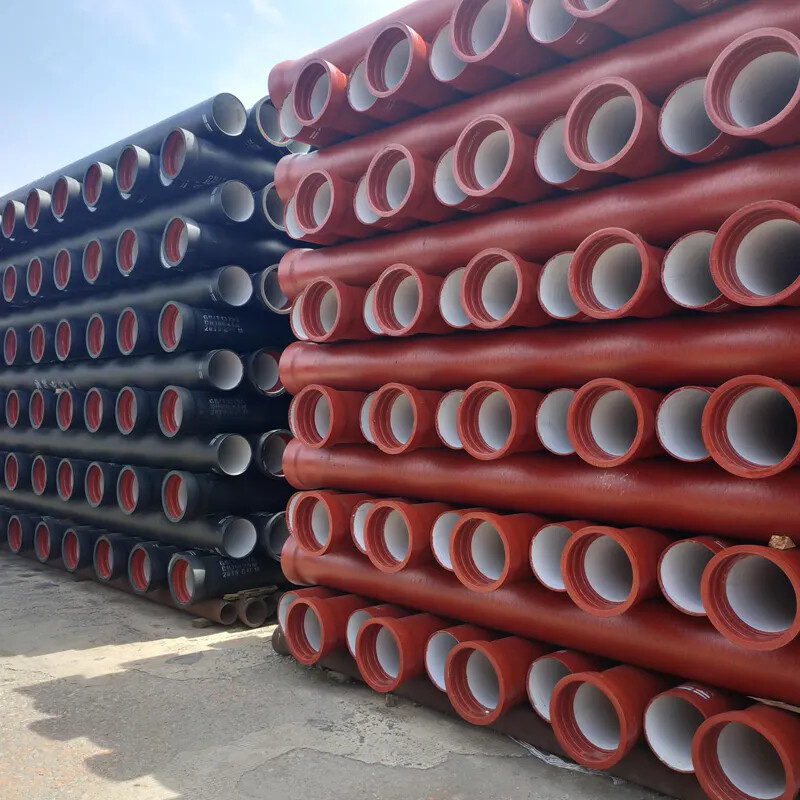
Ductile Iron Pipe (DIP) is a pipe made of ductile iron. Due to its excellent mechanical properties and durability, it is widely used in municipal engineering, water conservancy engineering, industrial transportation and other fields.
1. Material characteristics
Ductile iron is made by adding spheroidizing agents such as magnesium and rare earth to the molten iron during the casting process, so that graphite is precipitated in a spherical form (rather than flake graphite in ordinary cast iron). This structure significantly improves the toughness and strength of the material while retaining the corrosion resistance and wear resistance of cast iron.
Advantages:
High strength: The tensile strength is 2-3 times that of ordinary cast iron, close to that of steel.
High toughness: It can withstand a certain degree of bending or impact and has good seismic resistance.
Corrosion resistance: The service life is extended through internal and external anti-corrosion treatment (such as zinc spraying and asphalt coating).
Long life: The design life is usually 50-100 years.
2. Manufacturing process
Centrifugal casting: Molten iron is poured into a high-speed rotating mold, and the centrifugal force makes the pipe wall evenly distributed, reducing defects.
Annealing treatment: Eliminate casting stress and improve toughness and ductility.
Surface treatment: Spray cement mortar or epoxy resin anti-corrosion layer on the inner wall, spray zinc on the outer wall and apply asphalt or other coatings.
3. Structure and interface
Socket-and-spigot interface: One end of the pipe is a socket (enlarged end) and the other end is a spigot (tapered end), which is connected by a rubber sealing ring, which is easy to install and has good sealing.
Flange interface: Used in scenarios where frequent disassembly or connection of equipment is required.
4. Application areas
Municipal engineering: urban water supply, drainage network, fire protection system.
Industrial transportation: transportation of coal gas, slurry, chemical fluids.
Agricultural irrigation: large-scale water supply system.
Areas requiring earthquake resistance: Due to its flexibility, it is suitable for earthquake-prone areas.
5. Comparison with other materials
Compared with PVC pipes: higher strength, good pressure resistance, suitable for large diameter and high pressure scenarios, but the cost is higher.
Compared with steel pipes: more corrosion-resistant, no frequent maintenance, but heavier.
Compared with ordinary cast iron pipes: significantly improved tensile strength and toughness, stronger earthquake resistance.
6. Installation and maintenance
Installation: pay attention to the flatness of the foundation, the alignment of the socket joints, and the installation of the rubber ring in place.
Maintenance: Check the anti-corrosion layer regularly, especially in corrosive soil environments.
de range of applications in various industries.
Related Posts
Online Message
Leave A Message
If you are interested in our products and want to know more details, please leave a message here, we will reply you as soon as we can.







